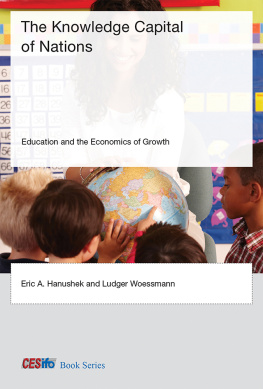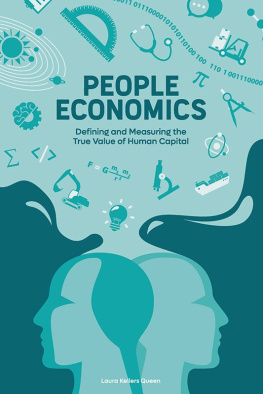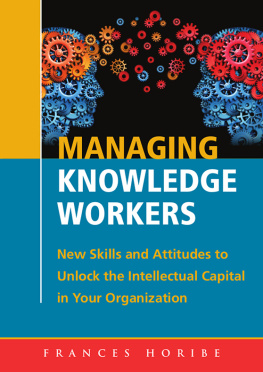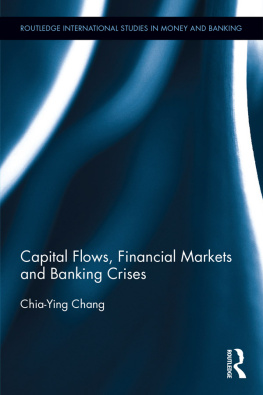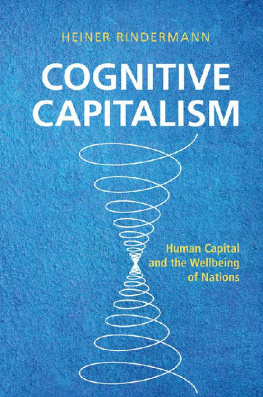The Knowledge Capital of Nations
CESifo Book Series
Hans-Werner Sinn
The Political Economy of Education: Implications for Growth and Inequality
Mark Gradstein, Moshe Justman, and Volker Meier
The Decline of the Welfare State: Demography and Globalization
Assaf Razin and Efraim Sadka, in cooperation with Chang Woon Nam
The European Central Bank: Credibility, Transparency, and Centralization
Jakob de Haan, Sylvester C.W. Eijffinger, and Sandra Waller
Alleviating Urban Traffic Congestion
Richard Arnott, Tilmann Rave, and Ronnie Schb
Boom-Bust Cycles and Financial Liberalization
Aaron Tornell and Frank Westermann
Social Security and Early Retirement
Robert Fenge and Pierre Pestieau
Children and Pensions
Alessandro Cigno and Martin Werding
Currency Boards in Retrospect and Prospect
Holger C. Wolf, Atish R. Ghosh, Helge Berger, and Anne-Marie Gulde
Economic Prosperity Recaptured: The Finnish Path from Crisis to Fast Growth
Seppo Honkapohja, Erkki A. Koskela, Willi Leibfritz, and Roope Uusitalo
The Indirect Side of Direct Investment: Multinational Company Finance and Taxation
Jack M. Mintz and Alfons J. Weichenrieder
The Knowledge Capital of Nations
Education and the Economics of Growth
Eric A. Hanushek and Ludger Woessmann
The MIT Press
Cambridge, Massachusetts
London, England
2015 Massachusetts Institute of Technology
All rights reserved. No part of this book may be reproduced in any form by any electronic or mechanical means (including photocopying, recording, or information storage and retrieval) without permission in writing from the publisher.
Library of Congress Cataloging-in-Publication Data
p. cm.
Includes bibliographical references and index.
ISBN 978-0-262-02917-9 (hardcover : alk. paper)
ISBN 978-0-262-32918-7 (retail e-book)
Hanushek, Eric A. (Eric Alan), 1943
The knowledge capital of nations : education and the economics of growth / Eric A. Hanushek and Ludger Woessmann.
pages cm. -- (CESifo book series)
Includes bibliographical references and index.
ISBN 978-0-262-02917-9 (hardcover : alk. paper)
1. Economic development--Effect of education on. 2. Education--Economic aspects. I. Woessmann, Ludger. II. Title.
HD75.7.H366 2015
338.9'26--dc23
2014039904
2014039904
EPUB Version 1.0
d_r1
CESifo Book Series Foreword
This volume is part of the CESifo Book Series. Each book in the series aims to cover a topical policy issue in economics. The monographs reflect the research agenda of the Ifo Institute for Economic Research and they are typically tandem projects where internationally renowned economists from the CESifo network cooperate with Ifo researchers. The monographs have been anonymously refereed and revised after being presented and discussed at several workshops hosted by the Ifo Institute.
Preface
This book has been long in the making. Perhaps that is only fitting for a book that takes a long-term perspective, inquiring into the foundations of human prosperity. But we are still somewhat chagrined that we signed the contract to write it more than ten years ago. The problem is that the contract said we would finish it by the end of 2006. But only after we signed it did we realize many unanswered questions needed to be addressed before we could produce a coherent understanding of long-run economic growth. We now feel that we understand enough about international differences in growth to put together our factsfacts that have looked increasingly consistent across different specific inquiries.
Work on such a long-term project involves taking one step at a time. Thus many pieces that come together in this book have previously been published as articles in academic journals, in particular, the Journal of Economic Literature, the Journal of Economic Growth, the Journal of Development Economics, the Handbook of the Economics of Education, Economic Policy, and Economics Letters. We are grateful to the publishers of these outletsthe American Economic Association, Elsevier, Springer, and Wileyfor allowing us to draw heavily on those works here.
At various stages of our research on the topics of this book, we benefited from helpful comments from many colleagues, including Martha Ainsworth, Gary Becker, Luis Benveniste, Mark Bils, Franois Bourguignon, Deon Filmer, Paul Gertler, Dennis Kimko, Manny Jimenez, Chad Jones, Ruth Kagia, Beth King, Pete Klenow, Harry Patrinos, Giovanni Peri, Luigi Pistaferri, Lant Pritchett, Paul Romer, Fabiano Schivardi, Emiliana Vegas, several anonymous referees, and seminar participants at two book workshops at CESifo in Munich, as well as at countless paper presentations. On different parts, Jason Grissom, Lukas Haffert, and Trey Miller provided capable research assistance. At the finishing line, Lisa Ferraro Parmelee provided a deft editorial touch in improving the readability of the book.
We are grateful to CESifo for supporting this project throughout. Special thanks go to our respective home institutionsthe Hoover Institution at Stanford University and the Ifo Institute at the University of Munichnot least for their hospitality when hosting our mutual visits to work together. At various stages, additional support has come from the Pact for Research and Innovation of the Leibniz Association, the Packard Humanities Institute, the World Bank, the Inter-American Development Bank, and the Program on Education Policy and Governance of Harvard University.
Introduction
This book has a simple theme built on the long-run growth experience of nations: knowledge is the key to economic development. Nations that ignore this fact suffer, while those that recognize it flourish.
Around the world, people in virtually every country repeat the mantra that developing human capital is important, that we need to invest in youth, and that schools have a central role. This idea is actually centuries old. In the seventeenth century Sir William Petty, a British economist, suggested that to account properly for the wealth of a nation, one must assess the skills of its labor force. This theme entered into Adam Smiths classic eighteenth-century treatise, The Wealth of Nations, although it was overshadowed by the issues of division of labor and the invisible hand of the market that received more historical attention. To Smith,
A man educated at the expence of much labor and time to any of those employments which require extraordinary dexterity and skill, may be compared to [an] expensive machin[e]. The work which he learns to perform, it must be expected, over and above the usual wages of common labor, will replace to him the whole expence of his education, with at least the ordinary profits of an equally valuable capital. (Smith [1776] 1979: 118)
Over two centuries later, we more than ever think that in todays knowledge economy, education equips people with the skills that make them more productive in their work. Perhaps even more important, education conveys the knowledge and competencies that enable a nations people to generate and adopt the new ideas that spur innovation and technological progress and thereby ensure future prosperity.
But the common refrain about investing in human capital, translated worldwide into numerous languages across the cities and villages and borne across time, has become a cacophony of voices that modify and distort the message such that it has lost much of its substance and force. Even with the best intentions, both policy makers and researchers have concentrated their attention not on valued skills but on proxies related to school attainment levels. In developed countries, this is secondary school completion and, more recently, access to colleges and universities. In developing countries, led by the World Banks Education for All initiative and the United Nations Millennium Development Goals, it is access to schooling and completion of lower secondary schooling. When issues pertaining to quality are raised, attention has turned to school inputsspending, class size, and the like.
Next page
